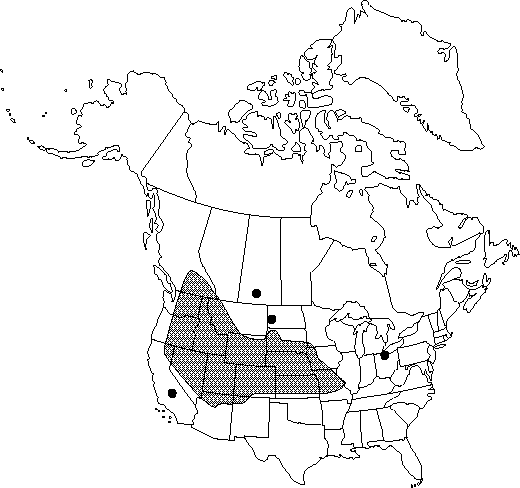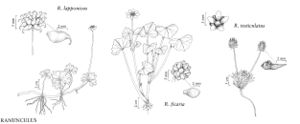Ranunculus testiculatus
Stirp. Austr. Fasc. 2: 97. 1763.
Stems erect or ascending, not rooting nodally, villous, not bulbous-based. Tuberous roots absent. Basal leaf-blades broadly spatulate in outline, 1-2×-dissected, 0.9-3.8 × 0.5-1.5 cm, segments linear, margins entire, apex obtuse to acuminate. Flowers: receptacle glabrous; sepals spreading, 3-6 × 1-2 mm, villous; petals yellow, 3-5 × 1-3 mm. Heads of achenes cylindric, 9-16 (-27) × 8-10 mm; achenes 1.6-2 × 1.8-2 mm, tomentose; beak persistent, lanceolate, 3.5-4.5 mm.
Phenology: Flowering spring (Apr–May).
Habitat: Disturbed areas, especially in grassland
Elevation: 400-2500 m
Distribution

Introduced; B.C., Sask., Ariz., Calif., Colo., Idaho, Iowa, Kans., Minn., Mo., Mont., Nebr., Nev., N.Mex., N.Dak., Ohio, Oreg., S.Dak., Utah, Wash., Wyo., native to Eurasia
Discussion
In North America, Ranunculus testiculatus seems to be expanding its range rapidly in arid and semiarid areas. A second species of this subgenus, R. falcatus Linnaeus [Ceratocephala falcata (Linnaeus) Persoon], has been reported from North America, but all reports seem to be based on misidentified material of R. testiculatus.
Selected References
None.
